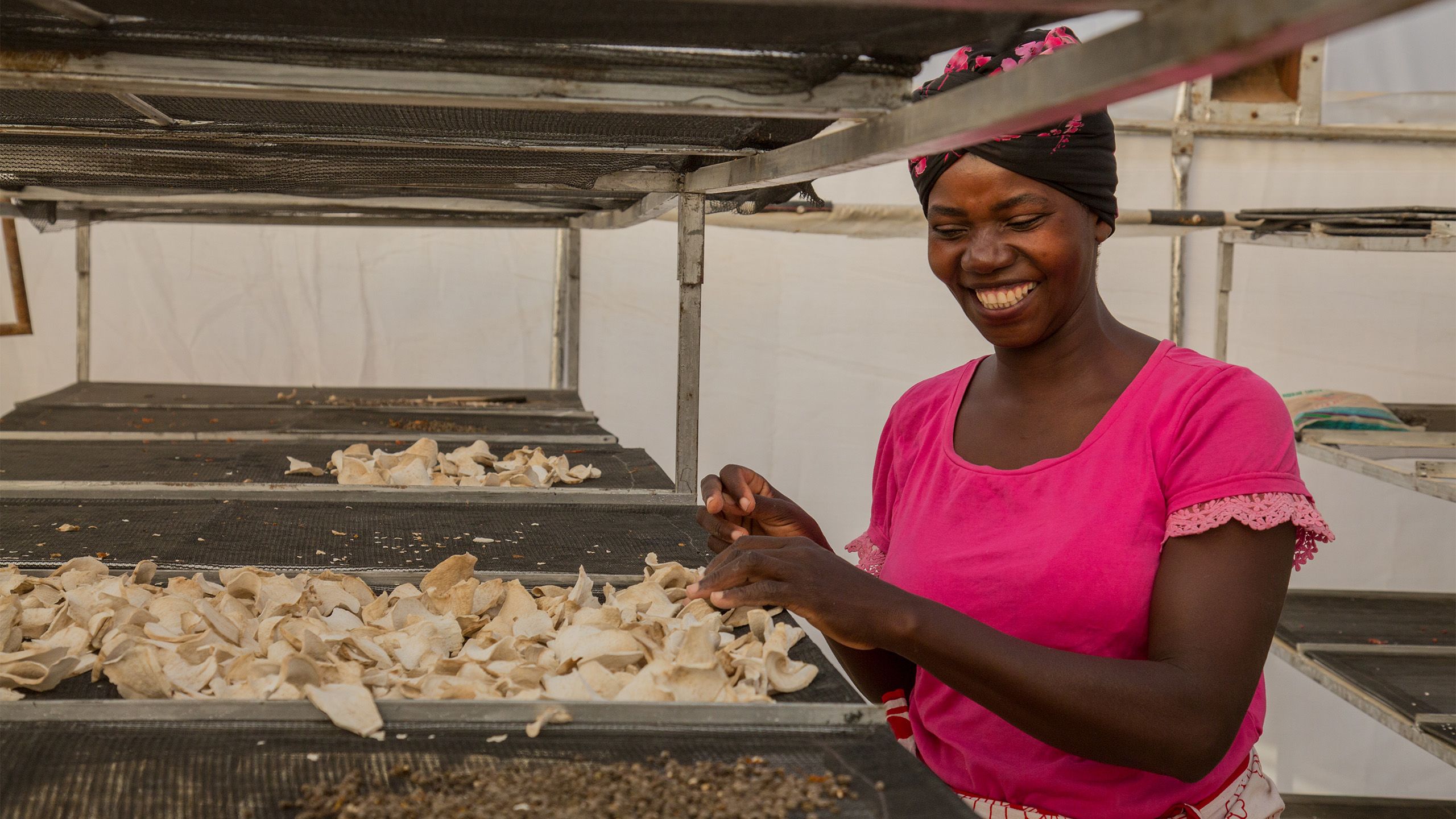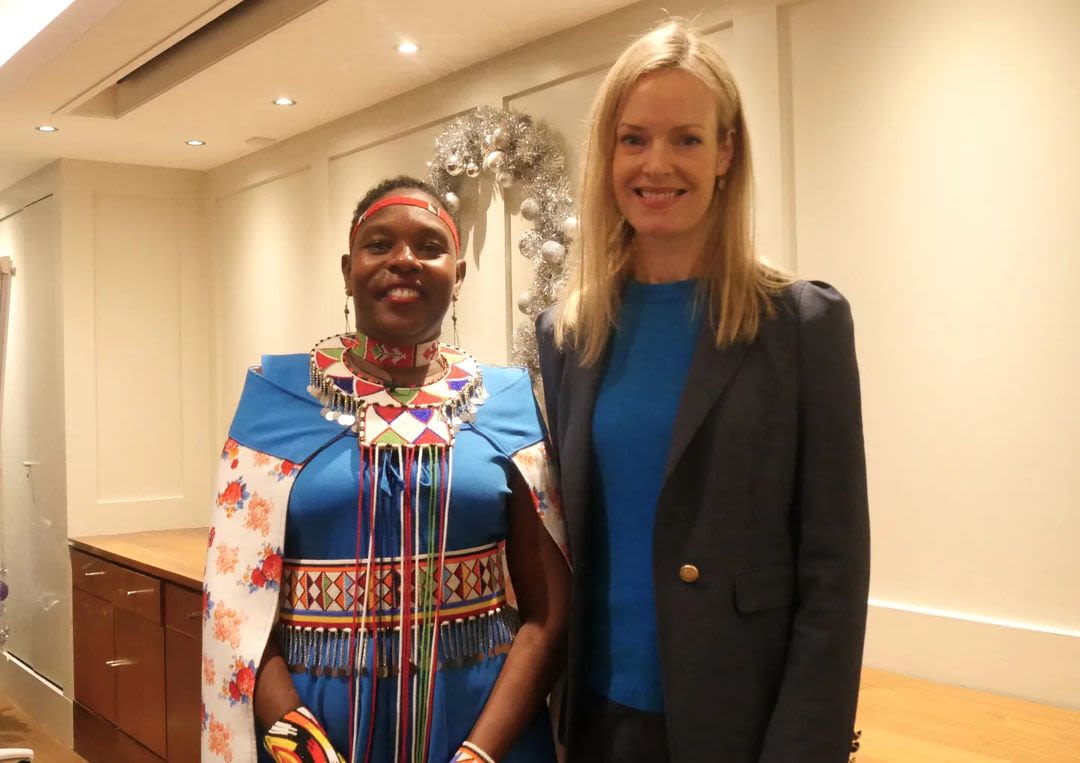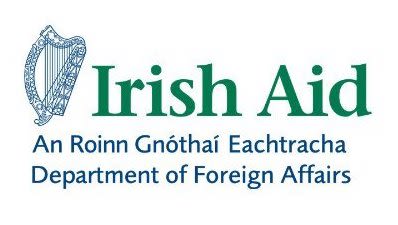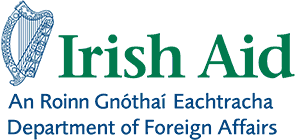#IrishAidworks

Every day you are part of Ireland’s efforts to tackle poverty, inequality, discrimination, conflict and climate change worldwide. Through Ireland’s overseas development programme, Irish Aid, the Irish people contribute a small portion of their taxes to support development and humanitarian work carried out by organisations like us at Oxfam Ireland.
For example, last year with the support of Irish Aid and the Irish public, Oxfam Ireland reached 12.2 million people across 12 countries.
Reaching 12.2 million includes
- Direct support like providing tools and training to help grow livelihoods or clean fresh water for people forced to flee
- Indirect support like mass media campaigns to challenge socials norms that contribute to poverty and inequality or raise awareness about how to stay safe during emergencies.

Here's a small snapshot of what we achieved together in Malawi.
Meet some of our partners
Scroll down to learn how you helped provide 30,000 people with water in southern Malawi.
With the support of Irish Aid, we were able to provide 30,000 people in southern Malawi with water, helping them survive a cholera outbreak.
Hear from Mercy, a Health Promotion Officer
Scroll down to see how you helped women farmers and small business owners to become economically independent.
With the support of Irish Aid, we were able to help women farmers and small business owners to become economically independent.
Hear from Ms Mpango
Hear from Rosaria
Hear from Steve
Scroll down and see how you have helped police officers in Malawi support survivors of gender-based violence.
With Irish Aid funding and the help from our partner CAVWOC, police officers in Malawi are able to assist with cases of gender-based violence.
Hear from Sergeant Jumbe - Victims Support Unit Officer
Welcome to our #FirstWorldProblems Podcast!
#FirstWorldProblems is an often-trending topic that sums up how we feel when our day is interrupted by trivial – but annoying! – problems.
Using the hashtag #FirstWorldProblems is a good reminder that we’re all aware there are bigger problems facing people around the world.
But it can suggest that those problems are removed from our lives here in Ireland or the global north.
Everyone finds unreliable public transport or running out of phone battery annoying, whether you live in Ireland or Malawi.
And everyone is affected by the biggest issues facing our world right now: poverty, inequality, discrimination, conflict and climate change.
The only solution is to come together as a global community. That has always been the only solution.
There aren’t any #FirstWorldProblems. Just #OneWorld facing global issues that affect us all.
And we’re all part of the solution.
Listen to our #FirstWorldProblems Bonus Episode for 2022 with Jane Meriwas, Executive Director of Samburu Women Trust and Juliette Gash, RTÉ’s foreign news reporter.

Past Episodes
Here's a snapshot of what we achieved last year.
In Malawi, Oxfam and its local partners leveraged Oxfam’s ENOUGH! global campaign, to improve awareness on ending violence against women and girls at district and community levels. Oxfam and partners also worked with local leaders, human rights defenders, child protection workers and community victim support units, among others to conduct door to door conversations on ending violence against women and girls. In total, Oxfam’s campaigns on GBV in Malawi have reached out to an estimated 2.4 million people at the national and district level.
In Tanzania, 28,277 people were reached through campaigns aimed at challenging the social norms that perpetuate GBV.
In Rwanda, 15,520 people were reached through GBV awareness campaigns. Subsequently, 89% of those reached reported a reduction in GBV in their communities.
In Zimbabwe, we reached 5.5million people across multimedia platforms, including radio shows, which facilitated conversations on the 2022 National Budget and the roles of women and young people in furthering the nation’s economy.
In the Democratic Republic of Congo 7,000 people were trained by 30 local hygiene promoters to protect themselves and their communities from public health threats including diarrhoeal and respiratory diseases.
In Uganda, we supported people to increase their average incomes from US$42.63 (€37.33) in 2020 to US$94.69 (€82.90) in 2021.
In Ireland, we undertook significant advocacy work through the Irish media in the run up to the agreement of the Organisation for Economic Cooperation and Development’s (OECD) global tax deal in early October 2021, emphasising that this was a poor deal for low-income countries.




